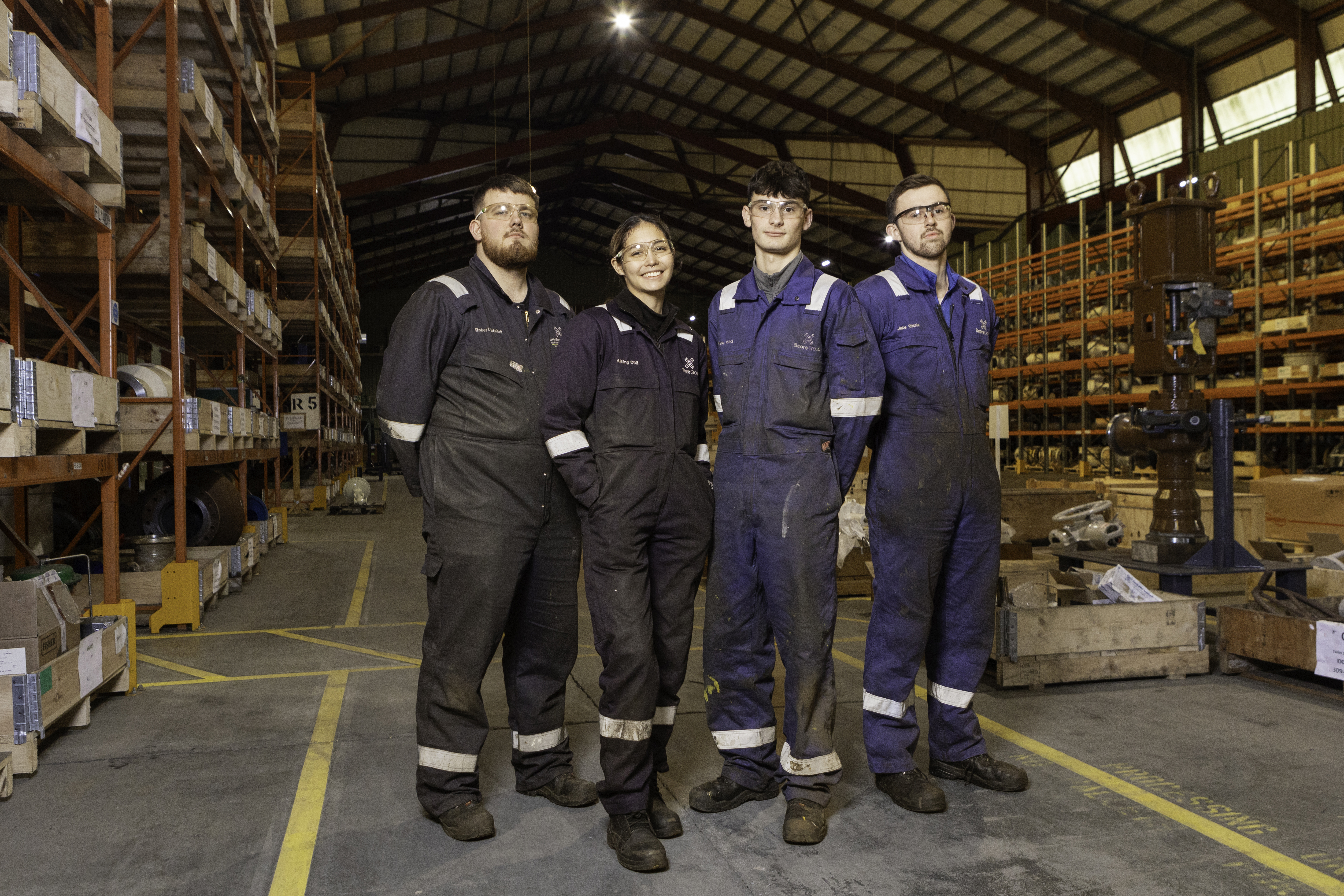Engineers unblock talent pipeline to Score apprentices fit for business
When specialist engineers Score Group found a blockage in their apprentice recruitment pipeline, they did what any good engineer would do and found a practical solution.
The company, with 950 employees across Scotland, was struggling to find school leavers with the maths skills needed for its engineering apprenticeships. So, the business decided to work with schools around its headquarters in Peterhead and set up maths clubs to help potential apprentices build the numeracy skills they needed for the job.
Leighton Willox, Score’s head of training, explained: “We identified maths as a barrier for recruiting new talent. People were applying for apprenticeships without the qualifications that our college learning provider partners are looking for.”

The company’s first job was to explain to young people with mobile phones and calculators why they needed to do hard sums.
Leighton said: “Our engineers can go in and explain exactly why you need maths by taking real life examples into the classroom.”
By doing so, this has helped Score to recruit the large numbers of apprentices they need every year. At the moment, the company has 130 Modern Apprentices across four sites - 110 working on technical disciplines and 20 in business support roles. There are also 12 Graduate Apprentices.
Together, the apprentices make up almost 15% of the workforce.
Score began employing apprentices 30 years ago and has never stopped.
Leighton said: “Score heavily invested in apprentices when a lot of companies moved away from them. Our apprenticeship programme kept going through those years. Our numbers at the moment are not abnormal, we have been at that level or even higher for the last 20 years.”
With a shortage of the technical skills Score needs within the labour market, it makes sense to train their own talent.
Leighton said: “We are largely in the market for valve technicians and machinists. There are not a lot of valve specialists out there. There are more machinists but they are highly prized and more difficult to come by.
“We have had a lot of success in taking our own engineers through Modern Apprenticeships, making sure we develop our workforce to deliver the highly skilled and specialised roles we need.”
Some apprentices who struggled with maths at school have even gone on to become Graduate Apprentices.
Leighton added: “We do get some great success stories. Some of our apprentices have got as far as degree level, which, in an engineering discipline is intensive for maths. To see that progression is amazing.”
Score’s Modern Apprentices spend a year in the classroom before starting on site.
Leighton explained: “We have a lot of faith in that first year of off-the-job training. Apprentices start in the training workshop, bench fitting, machining, and learning to use hand tools. They learn how to operate in a workshop before they move into a work environment. We see this as absolutely critical.”
This apprenticeship training model has been so successful in Scotland that Score exports it around the world. The company is already using this apprenticeship training model in Trinidad and Australia, with smaller schemes in Canada and Norway.
The apprentices who come through Score are also spread all over the world. Leighton said: “I’m on the board of our European operations. Out of six members, four are time-served Score apprentices.
“I regularly talk to people who have gone through our apprenticeships and have gone on to be high achievers in the energy industry. They all stress the value of their apprenticeship. They may have moved on to two or three other places, but they have never seen anything like the experience they had at Score.”
It is Score’s successful training model that has earned the company a place in the final of the Scottish Apprenticeship Awards in the Large Apprentice Employer of the Year category sponsored by Anderson Strathern.
Find out more
The winner of the Large Apprentice Employer of the Year category sponsored by Anderson Strathern will be revealed during Scottish Apprenticeship Week, which takes place from 4 to 8 March.